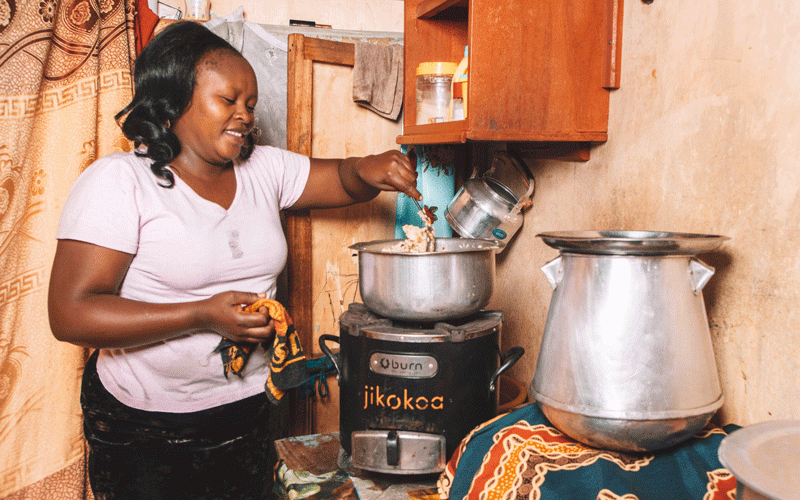
A substantial US$2.2 billion was pledged to support cleaner and healthier cooking for one billion people, following the International Energy Agency Summit on Clean Cooking in Africa in May.
This financial injection is set to fund a broad range of initiatives aimed at providing cleaner and healthier cooking across the continent.
At the same time, global markets for voluntary and mandatory carbon credits are gathering pace, with more corporates and project developers seeking to finance initiatives like clean cooking that benefit both people and the planet.
Carbon finance, which includes the use of carbon credits, is a system that encourages investment in environmentally friendly projects by channelling funds from major carbon emitters to support impactful initiatives in areas that need them most.
Across Zimbabwe, the transformative potential of carbon finance is evident.
In addition to clean cooking projects, the country plays host to a range of initiatives spanning various sectors from energy efficiency to regenerative agriculture and waste management.
When correctly implemented, carbon finance can make a real difference for African families and communities.
Profits made from such projects’ carbon credits can flow directly to local people via approved revenue sharing mechanisms and, when managed transparently, can create jobs and support community development.
- How to ensure Zimbabwe benefits from carbon finance
Keep Reading
For example, a partnership between carbon project developers Cicada Carbon Ltd and The African Stove Company (TASC) has distributed nearly 120 000 efficient cookstoves across multiple provinces, including Mashonaland West and Mashonaland Central.
This initiative has so far verified and issued 656 464 carbon credits, with an additional 315 976 credits expected in the coming months.
The total anticipated issuance for the project's lifetime is 2.2 million credits, equivalent to 2.2 million tonnes of CO2 emissions reductions.
However, there are several puzzle pieces that must work together to ensure similar benefits continue to reach those who need them most.
To maximise the impact of these programmes and capitalise on the resurgence of interest in carbon credits, Zimbabwe should establish a reliable, predictable and comprehensive regulatory system for carbon markets that encourages the flow of investment into beneficial carbon projects in the country.
China provides a case history here. Early supportive policies enabled China to develop a regulatory system that attracted diverse projects and substantial international investment.
By 2012, China had become the leading destination for project development in the global carbon market under the Kyoto Protocol, with the country hosting well over half of the projects generating tradable carbon credits.
Recent changes to Zimbabwe's voluntary carbon credit regulations, present new opportunities for the sector, encouraging innovative partnerships between the government, private sector entities, and communities to create a stable and supportive regulatory environment.
Collaboration between all involved could help to shape balanced policies to guarantee local benefits and alignment with international standards.
To encourage international support and avoid volatility, transparency and accountability in fund allocation, coupled with rigorous monitoring and verification processes, are essential to ensure that carbon finance projects in Zimbabwe deliver measurable environmental and social benefits.
Key to regulatory success is the ongoing dialogue between the Zimbabwe Carbon Association (ZCA), which includes carbon credit project developers, and the government.
Nick de Swardt, the chairman of the ZCA, says that the current regulations are generally a positive move for the Zimbabwean markets, but there are several refinements that could stimulate significant investment in climate change mitigation and adaptation measures.
These include a more nuanced approach to the benefit share mechanism, and increasing the predictability of the registration process.
Unlocking this investment will require an open engagement with the carbon project developers, financiers and credit buyers who make up this market, and the communities who may benefit from such projects.
By addressing any potential concerns and finding common ground, there is an opportunity to create a more favourable environment for carbon project investors to deliver benefits for local people.
If successful, these efforts could establish resilient financial models for carbon finance, enabling Zimbabwe to follow in the footsteps of other countries with more established markets and take advantage of new carbon markets under the Paris Agreement’s Article 6.
This would not only position Zimbabwe as a significant player in the global carbon market but also direct funds towards climate mitigation and adaptation efforts across the continent.
As businesses across the globe continue working towards net zero, with a supportive environment Zimbabwe and other African countries can attract foreign investment and foster sustainable development projects that serve to benefit people and planet.
- Shelley Estcourt IS CEO Africa at TASC (The African Stove Company)










